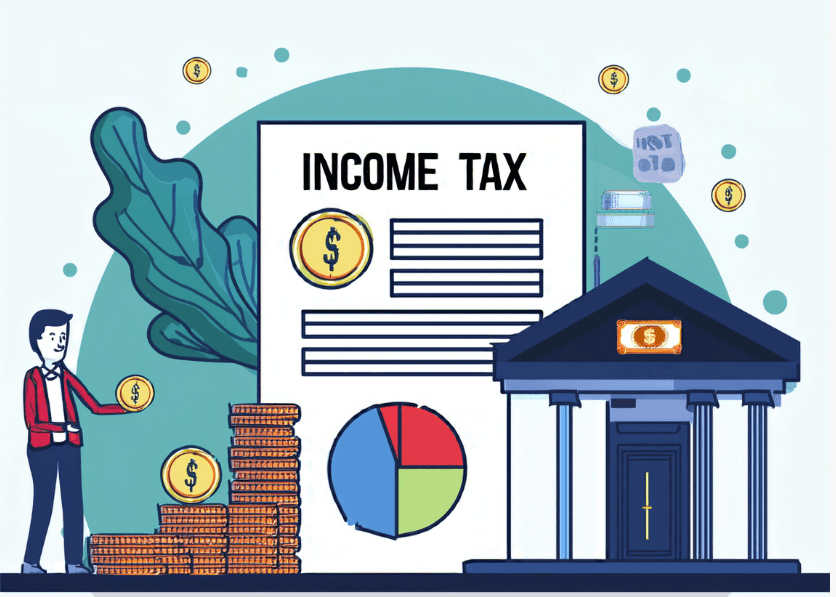
In a significant development, the Central Board of Direct Taxes (CBDT) has extended the Income Tax Return (ITR) filing deadline for the financial year 2024–25 (assessment year 2025–26) from July 31, 2025, to September 15, 2025. The announcement has brought relief to millions of taxpayers, especially individual salaried taxpayers and small business owners, who were gearing up to file their returns by the end of July.
Let’s explore the key details of this extension, its implications, and what taxpayers should do next.
Why Did CBDT Extend the Deadline?
There are several reasons behind this timely extension:
- To Prevent Last-Minute Rush
Extending the deadline helps reduce traffic on the income tax e-filing portal, which often becomes overwhelmed during the final days of filing.
- Delayed Release of ITR Forms
The income tax department usually releases ITR forms early in the financial year. However, this year, the final versions of ITR forms and the associated filing utilities were delayed.
- Technical Preparations Required
Filers rely on updated software tools and prefilled data for accurate submissions. The extension allows taxpayers and chartered accountants more time to prepare.
- Representation from Stakeholders
Various industry bodies, tax professionals, and associations had requested an extension to allow smooth and error-free filing.
New ITR Filing Deadline for FY 2024–25
| Particulars | Original Due Date | Revised Due Date |
|---|---|---|
| ITR filing (individuals) | July 31, 2025 | September 15, 2025 |
This revised deadline applies to individual taxpayers, HUFs (Hindu Undivided Families), and non-audit cases.

Who Benefits from the Extension?
The extension primarily benefits:
- Salaried individuals
- Pensioners
- Freelancers and gig workers
- Self-employed persons not requiring audit
- Small businesses and professionals with income below the audit threshold
This additional time allows taxpayers to:
- Reconcile income and TDS details with Form 26AS and AIS
- Claim deductions and exemptions accurately
- Avoid late filing fees under Section 234F
- Ensure timely filing to avoid interest under Sections 234A, 234B, and 234C
What Should You Do Next?
Even with the extension, taxpayers should avoid procrastination. Here’s what you should do immediately:
1. Check Form 26AS and AIS
Compare the income reflected in your Form 26AS and the Annual Information Statement (AIS) with your actual income.
2. Collect Relevant Documents
Gather Form 16, interest certificates, investment proofs, home loan certificates, capital gain statements, etc.
3. Choose the Correct ITR Form
Wait for the official ITR forms (such as ITR-1, ITR-2, etc.) to be released by the Income Tax Department.
4. Keep Track of Notifications
Regularly visit the Income Tax e-Filing Portal and monitor announcements regarding the availability of forms and updated utilities.
Even though the due date has been extended, it’s smart to file your return early. Here’s why:
- Faster Refunds:
Early filers usually receive their refunds quicker, especially if filed electronically with correct bank account details. - Avoid Penalties & Interest:
If you have tax payable and miss the new deadline, you may still incur penalties under Section 234F, interest under Section 234A, and lose out on certain carry-forward benefits. - Better Accuracy:
Filing early gives you time to verify Form 26AS, AIS/TIS, and ensure income is correctly reported, minimizing the risk of notices from the IT department.
Filing Options Available
Taxpayers can file returns through:
- Official e-Filing Portal
- Mobile App: Aaykar Setu
- Authorized ERIs (E-Return Intermediaries)
- Chartered Accountants and Tax Professionals
Consequences of Late Filing (Post-September 15)
If you fail to file your ITR even after the extended deadline:
- A late fee of up to ₹5,000 under Section 234F may apply
- You may lose the opportunity to carry forward certain losses
- Interest liability under various sections will increase
- Refunds may get delayed
Key Tax Filing Tips for AY 2025–26
| Tip | Details |
|---|---|
| File Early | Helps avoid last-minute rush and errors |
| Use Registered CA or Tax Expert | Especially if your income involves capital gains, foreign assets, or business income |
| Opt for the Right Tax Regime | Choose between old and new tax regime based on your tax planning |
| Double-check Deductions | Ensure accurate claims under Sections 80C, 80D, 24(b), etc. |
Final Thoughts
The extension of the ITR filing deadline to September 15, 2025, is a welcome move, offering relief and more time for compliance. However, this should not lead to complacency. Filing your return early ensures faster refunds, reduces stress, and minimizes the chances of penalties or notices from the tax department.
💡 Pro Tip: Once the utilities and ITR forms are released, begin the process without delay. Early filing is always a smart move.
Stay Updated with Banking Insights
For the latest updates on income tax, banking regulations, financial tools, and government schemes, follow Banking Insights. We bring you well-researched and timely articles to help you make informed financial decisions.

